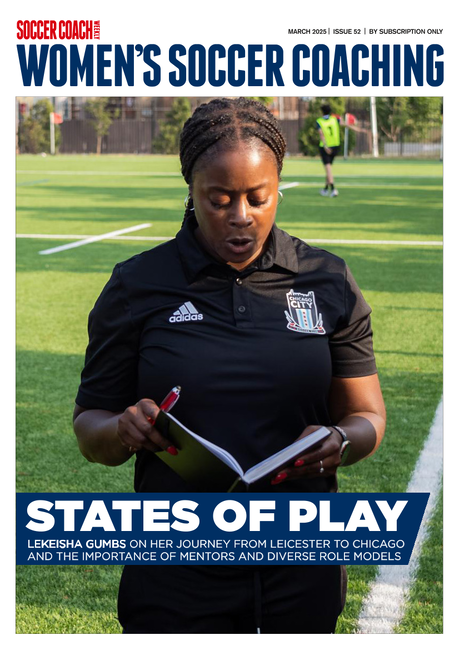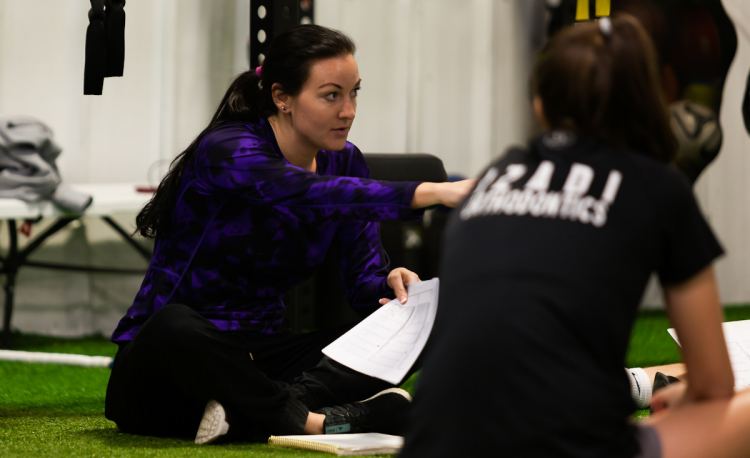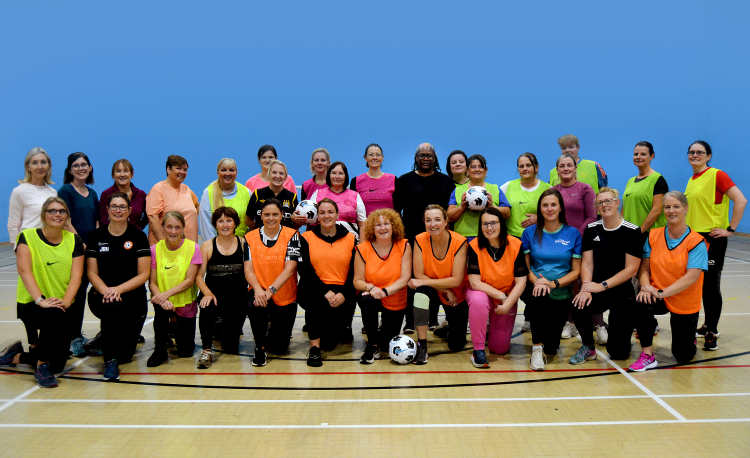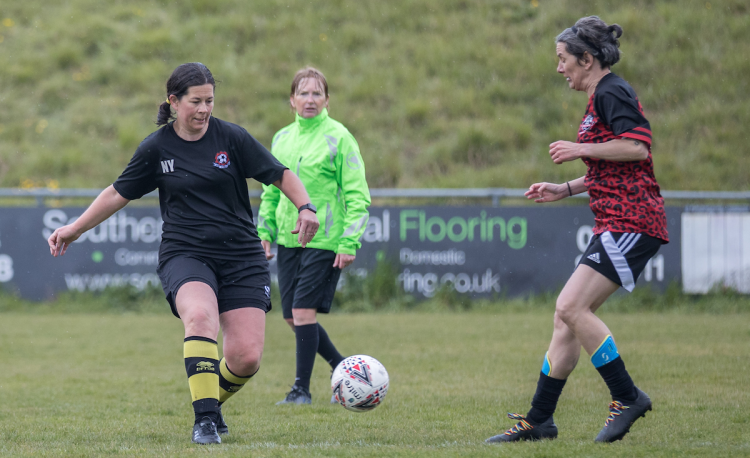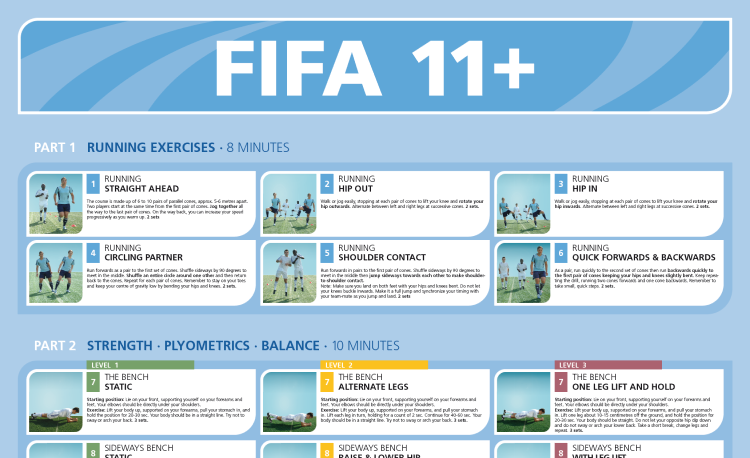You are viewing
3 of your 3 free articles
How to support staff through menopause
From normalising discussions to fostering empathy, Anna Allerton suggests ways for clubs to help those coaches who experience problematic symptoms.
As menopause becomes a more prominent topic of discussion, it is essential for clubs to navigate this life stage with sensitivity and support for staff.
Menopause can, of course, significantly impact women’s careers and experiences in the workplace.
Research from the Fawcett Society, published in 2022, found that one in 10 women will quit work because of the various symptoms, while, as many as 8 in 10 said their workplace has no basic support in place for them.
With more than 13 million women in the menopause stage in the UK, it will be a stretch to find a club where this is not being experienced.
It is therefore crucial for clubs to implement strategies to better understand and accommodate menopausal individuals.
Here are some top tips to do this...
Open up the conversation
Start by breaking the silence surrounding menopause and encourage open and honest discussions about women’s health in all life stages.
Normalising conversations about menopause helps combat stigma and creates a supportive environment for individuals to seek assistance.
I would encourage clubs to think through their strategy for menopause and avoid falling into the trap of thinking it’s a ’box-ticking’ exercise.
"This is not all about women who are in their 50s getting hot and angry..."
Individualised approach
Recognise that menopause is not a one-size-fits-all experience and tailor your support strategies to meet the unique needs of each staff member experiencing the change.
Avoid generic policies that gather dust and instead offer personalised approaches and resources to ensure all women feel valued and supported.
This is not all about women who are in their 50s getting hot and angry. For example, 1 in 300 women will experience menopause under 40, which suggests that some could be in perimenopause in their 20s and 30s. Being open to these complexities will make you more robust in creating your strategy.
Redefine wellness
Understand that menopause affects not only the body, but also the mind.
Prioritise mental health and emotional wellbeing by offering resources and support to help individuals navigate the psychological aspects of menopause.
This holistic approach to wellness fosters a supportive environment, where menopausal individuals feel understood and empowered.
Provide practical support
Offer practical assistance to alleviate the challenges of menopause in the workplace.
Provide free sanitary products, pain relief and flexible working arrangements to help individuals manage their symptoms effectively. Take this resource with you on the road and wherever the team is.
By addressing practical needs, you prove your commitment to creating an inclusive and supportive work environment.
Flooding, or heavy periods, is a common symptom of perimenopause. When cycles are changing, and possibly becoming unpredictable, many women can often get caught out by periods coming on when they are not expecting it, so preparation is key.
Empower through education
Empower menopausal individuals with knowledge and resources to understand and manage their symptoms.
Offer access to information about menopause, including cycle mapping and symptom-logging tools. By providing education and support, you enable individuals to take control of their experiences to optimise performance.
The professionalisation of women’s sport over the last decade has created better science and insight for professional female athletes.
Cycle mapping provides individualised data, so that athletes are aware of what phase of their cycle they are in and can make informed decisions.
This performance mindset inspired my Work Smarter in Menopause® Executive Coaching model, which is all about feeling empowered and action-led during menopause, to make informed decisions about your reality to set yourself up to perform at your optimum at work.
Foster a culture of empathy
Encourage empathy and understanding among colleagues and managers and create a culture where individuals feel comfortable discussing their experiences without fear of judgment.
By fostering empathy and open communication, you promote a supportive environment where everyone feels valued and respected.
‘Brain fog’ is one of the biggest symptoms for clients in my coaching practice. It is ranked second (73%) in the top three symptoms that impact work, behind trouble sleeping (84%) and low confidence, anxiety, or depression (69%).
Clubs that open the conversation about menopause will be able to find efficient ways to support their people to navigate brain fog most effectively.
For example, if a coach experiences brain fog, being able to delegate to the team around them – rather like having a wing person who has your back – can lessen the impact on everyone involved. This can take some time to master, a lot of collaboration but epitomises teamwork.
Your symptom log can also help you map out, with your team, the particular triggers which bring brain fog on.
You can do this, too, for hot flushes, which can be horrendous, exposing and distracting. A big match, or stressful point in the season, could spike the cortisol and trigger flushes.
A culture of empathy within the club is more likely to allow someone the space and confidence to give their team a heads up that this is an issue for them.
Lead by example
Leaders within the club can set the tone for inclusivity and support.
Those people can lead by example by actively participating in menopause-awareness initiatives, and demonstrating their commitment to creating a supportive workplace environment.
By championing menopause support efforts, leaders can inspire others to follow suit and contribute to a culture of inclusivity.
Challenging yourself to listen on an active level can take time to master, but can be valuable when supporting colleagues during menopause.
Promoting regular one-to-ones, giving and receiving feedback and opening communication channels can really help, as can supporting internal menopause groups and employing executive coaching.
By implementing these top tips, clubs can effectively support menopausal staff members and create a workplace environment where everyone feels valued and respected.
By fostering open communication, providing personalised support, and prioritising wellness, clubs can navigate menopause with empathy and understanding.
Together, we can create a workplace culture that embraces diversity and supports individuals through all stages of life.
ABOUT THE AUTHOR
Anna Allerton is a consultant and executive coach, specialising in perimenopause and menopause. She founded her business with the objective of helping organisations create more inclusive cultures for menopause.
Her coaching practice offers deep and meaningful space for clients to find ways of thriving in their careers during midlife. Anna is a workplace expert for Jennis, founded by Dame Jessica Ennis-Hill; a public speaker; and has worked with government stakeholders addressing menopause in the workplace. She founded the Menopause Network for Women in Sport in 2023.
Readers can book a free, 30-minute coaching taster session with Anna now by emailing anna@allertoncoaching.com. More at: www.allertoncoaching.com.
Related Files
Newsletter Sign Up
Newsletter Sign Up
Discover the simple way to become a more effective, more successful soccer coach
In a recent survey 89% of subscribers said Women's Soccer Coaching makes them more confident, 91% said Women's Soccer Coaching makes them a more effective coach and 93% said Women's Soccer Coaching makes them more inspired.
*includes 3 coaching manuals
Get Inspired
All the latest techniques and approaches
Women's Soccer Coaching offers proven and easy to use soccer drills, coaching sessions, practice plans, small-sided games, warm-ups, training tips and advice.
We've been at the cutting edge of soccer coaching since we launched Soccer Coach Weekly in 2007, creating resources for the grassroots youth coach, following best practice from around the world and insights from the professional game.



